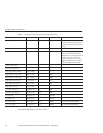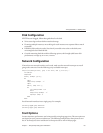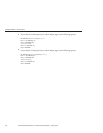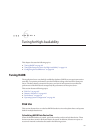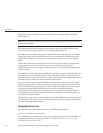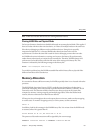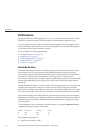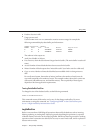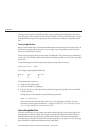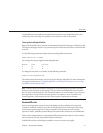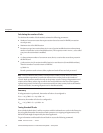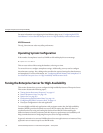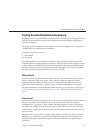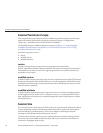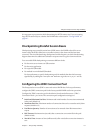
The log records remain in the buer until they are processed locally and shipped to the mirror
node. The log records are kept until the outcome (commit or abort) of the transaction is certain.
If the HADB node runs low on tuple log, the user transactions are delayed, and possibly timed
out.
Tuning LogBuerSize
Begin with the default value. Look for HIGH LOAD informational messages in the history les. All
the relevant messages will contain tuple log or simply log, and a description of the internal
resource contention that occurred.
Under normal operation the log is reported as 70 to 80% full. This is because space reclamation
is said to be “lazy.” HADB requires as much data in the log as possible, to recover from a possible
node crash.
Use the following command to display information on log buer size and use:
hadbm resourceinfo --logbuf
For example, output might look like this:
Node No. Avail Free Size
04442
14442
The columns in the output are:
■
Node No.:The node number.
■
Avail: Size of buer, in megabytes.
■
Free Size: Free size, in MB, when the data volume is larger than the buer. The entire buer
is used at all times.
Change the size of the log buer with the following command:
hadbm set LogbufferSize
This command restarts all the nodes, one by one, for the change to take eect. For more
information on using this command, see
“Conguring HADB” in Sun GlassFish Enterprise
Server 2.1 High Availability Administration Guide
.
InternalLogbuerSize
The node internal log (nilog) contains information about physical (as opposed to logical, row
level) operations at the local node. For example, it provides information on whether there are
disk block allocations and deallocations, and B-tree block splits. This buer is maintained in
shared memory, and is also checked to disk (a separate log device) at regular intervals. The page
size of this buer, and the associated data device is 4096 bytes.
TuningHADB
SunGlassFishEnterpriseServer2.1PerformanceTuningGuide • January2009112



